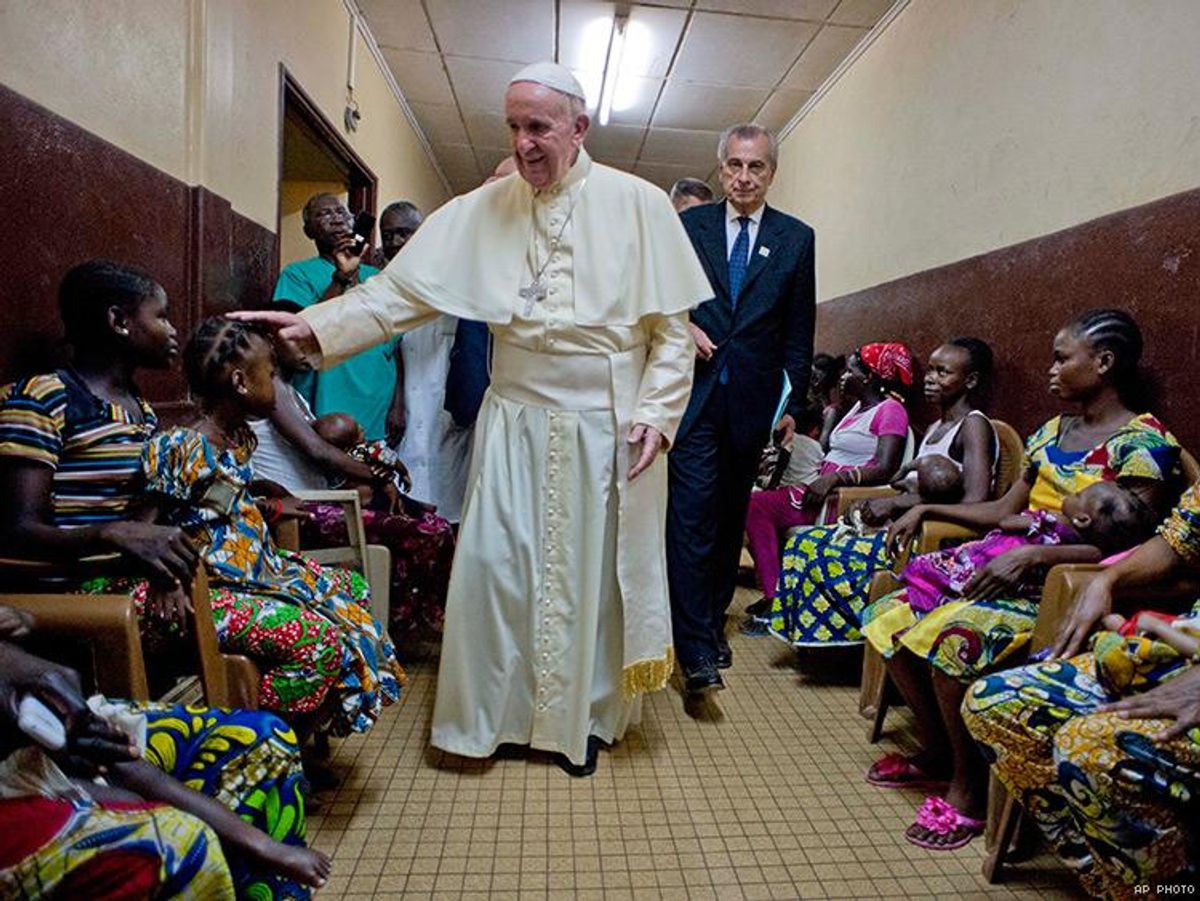Pope Francis, on his way home from Africa, has admitted that the question of allowing condom use to prevent the spread of HIV is "complicated" for the Roman Catholic Church but he also said there are larger problems to address.
Francis, who was returning to Rome after visiting Kenya, Uganda, and the Central African Republic, faced a query about condoms during a press conference on the papal plane Monday. He allowed that condoms are "one of the methods" that can prevent transmission of HIV, which has devastated Africa, but said the issue is "morally complicated for the church," Agence France-Presse reports.
He also appeared displeased that the question even came up. "When people are dying from lack of water and food ... your question seems too narrow," he told the German journalist who brought it up, according to AFP. "The problem is bigger than that," he added, noting that Africans face numerous difficulties, caused by arms trafficking and economic exploitation as well as the scarcity of food and clean water.
His predecessor, Pope Benedict XVI, received widespread criticism for his long-standing opposition to condom use to prevent HIV transmission, and he made a statement in 2009 claiming condoms could actually contribute to the spread of HIV. The church opposes condoms along with all other forms of contraception, and it opposes sexual relations between members of the same sex. But then in 2010, Benedict said using a condom was preferable to exposing a sexual partner to HIV, even if it also prevented pregnancy.
Pope Francis made few references to AIDS during his time in Africa, although he did visit children with HIV in a hospital in Uganda, the U.K.'s Guardian reports. He "kissed each one, listened to moving testimony from a girl born with the virus and thanked the church's healthcare workers for caring for those infected," the paper notes. Francis is shown above at a children's hospital in Bangui, Central African Republic.
Sub-Saharan Africa has 25.8 million people living with HIV, or nearly 70 percent of the worldwide total of 36.9 million, according to the Joint United Nations Programme on AIDS.

















































































